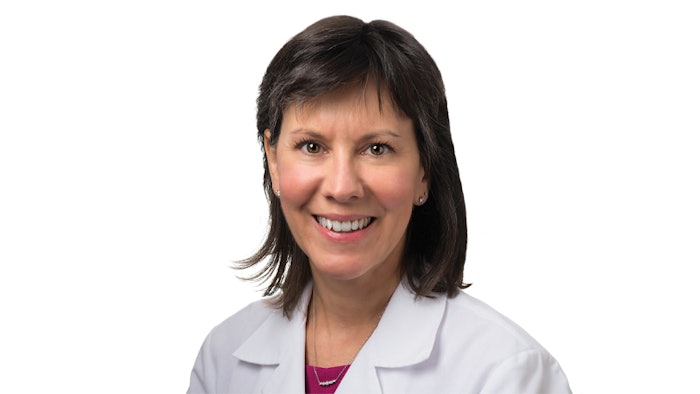All in the family
Distinguished Scientist lecture sheds light on the work of genetics and heart disease

Typically, the phrase “it’s a family affair” is an endearing sentiment and signals pride. But for cardiologist Elizabeth McNally, MD, PhD, FAHA, the combination of families and heart disease can be a cautionary signal.
Dr. McNally will share her expertise and her inspiration for shedding light on cardiovascular genetics during the Distinguished Scientist Lecture. She is an Elizabeth J. Ward professor of cardiology and director of the Center for Genetic Medicine at Northwestern University’s Feinberg School of Medicine in Chicago.
A physician scientist who is interested in defining genetic causes of cardiovascular disorders, Dr. McNally’s research and clinical work have focused on the study of genetic diseases that cause cardiomyopathies and arrhythmias. More than 20 years ago, Dr. McNally started one of the first broad-based cardiovascular genetics programs in the nation. She also works closely with patients who have neuromuscular diseases, such as muscular dystrophies, since many of these genetic disorders also cause cardiomyopathy and arrhythmias.
“Over the last 20 years, genetic testing has become available so that we now can readily determine the genetic causes, and we use this genetic information in the management of patients to improve outcomes,” Dr. McNally said. “One of the most important parts of genetic testing is working with family members so that we can identify people early in their disease course and offer interventions that slow the progression of disease.
Her work has led to the discovery of genetic signals that are being used to drive the development of new treatments.
“We have started to see the first gene-directed therapies come to patients, and there are many more in development or in clinical trials,” she said. “It’s very exciting to see these advances and to know the future is bright for genetically mediated cardiovascular diseases.”
Dr. McNally said her inspiration came from her first research experience. In looking at how these genetic disorders affect young people and run in families, she followed the clues, but didn’t yet have the genetic tools to make diagnoses in her early career.
“When I started graduate school, my advisor was Leslie Leinwand, PhD, and she was at the forefront of human molecular genetics,” she said. “We were collecting DNA samples from patients, but we did not yet have the technology to be able really examine the genetic material.
“I did my postdoctoral work with Louis Kunkel, PhD, who discovered the genetic cause of Duchenne Muscular Dystrophy. When I worked with him, we discovered multiple new genes that cause different forms of muscular dystrophy and cardiomyopathy. Now when I see patients in clinic, I can simply order these tests, and the results tell people what gene change caused their disease and how we will use this information to better manage their health care.”
Today, Dr. McNally’s work is geared toward a better understanding of how the genetic changes cause what we see in patients. From an experimental perspective, she said, it’s not always straightforward. The field has long relied on building animal models of genetic diseases, typically using mouse models because researchers can manipulate the mouse genome. Although the mouse models are highly useful for understanding physiological defects, many of the models have different outcomes in different mouse strains.
“We exploited differences in mouse models on different strain backgrounds, and we mapped and identified genetic modifiers that change the course of disease,” Dr. McNally said. “These modifiers are now driving pathways for therapies.”
Over the last decade, the use of human cells to better model cardiac diseases has greatly advanced. Using patient-derived cells to build patient-specific models of their own diseases, she said, is ideal, especially when testing gene editing.
Ultimately, Dr. McNally wants to underscore the fact that genetic diagnosis is key for diagnosing and treating cardiac diseases such as cardiomyopathies, heart failure and arrhythmias. However, how the gene change expresses itself in each person varies considerably.
“In genetic terms, we call this ‘variable expressivity,’ and this matters clinically because it means the genetic information is just one piece of the puzzle when evaluating a patient and family,” Dr. McNally said. “From a research perspective, this variability is what we are defining by finding genetic modifiers, and these modifiers teach us even more about the pathways underlying disease.”
Though cardiology has improved in the uptake of genetic testing, there’s more to do, she said.
“There are some guideline recommendations to use genetic testing, and we are seeing these increase,” she said. “However, many cardiologists are not comfortable ordering and interpreting these tests because they have not been trained how to do this. The genetic data is teaching us new ways to subclassify disorders and better understand and predict clinical course, so I see a future for genetic cardiologists.”
Dr. McNally recommends cardiologists talk with their patients who have a family history of particular diseases, such as heart failure, arrhythmias, aortic diseases and hypercholesterolemia, and encourage them to see a genetic cardiologist about whether genetic testing makes sense.











